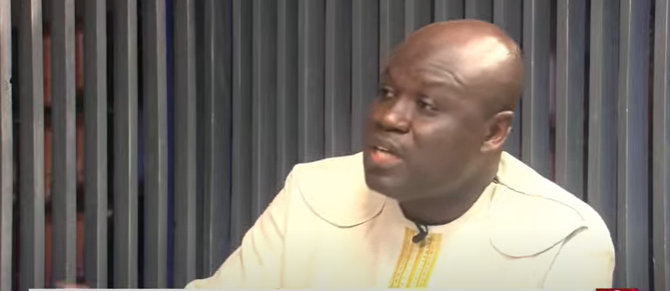The Chief Executive Officer of the Ghana National Chamber of Commerce and Industry, Mark Badu Aboagye, says the recent monetary policy measures taken by the Bank of Ghana will not produce the desired result of reducing inflation.
According to him, the country’s inflation is as a result of supply issues and thus employing monetary policies to control the inflation is a rather wrong move.
Speaking on JoyNews’ PM Express Business Edition, he said, “Yes we agree that for every macroeconomic policy there are always trade-offs, but you need to look at the bigger picture and the effect on the economy. I believe that the inflation we’re having now of which we are using the monetary policy to control is more of supply side as Prof. said.
“And you cannot actually use monetary policy to control inflation or target inflation that is coming from the supply side. Now if part of the inflation is imported, now if you’re increasing monetary policy of which people will not even have the money to buy the product it won’t solve that problem.”
He continued, “Go to the ports now and look at cost of duties, even though the actual costs have remained the same, because of the depreciation, people are paying more for goods that are coming in and they will end up adding it to the cost and that will push up inflation. You can’t control that with monetary policy.
“If you look at fuel, fuel prices are going up as a result of the depreciation of the cedi. You go to the market you’re buying fuel at 13 for diesel and almost 11 for petrol, you add it to the cost of production it will go up. It’s not like we have money and we are chasing fewer goods, the monies are not there.”
Mr. Aboagye has warned that should the Bank of Ghana continue to increase monetary policy rates Ghana’s inflation rate is going to increase.
He has thus suggested that the Central Bank turns its attention to the fiscal policies instead.
“Let’s look at the fiscal policies to support the monetary policies; in fact, if we continue to do this we may not be able to achieve the intended purpose of reducing inflation until we decide that the fiscal policy must complement the monetary policy.
“The monetary policy will go up and the interest rate will go up but we will not be able to achieve it. From the beginning of the year they have increased it 10% if there is a way that that policy would have resolved inflation we would have had that effect now,” he said.
His comments come on the back of the Monetary Policy Committee (MPC) of the Bank of Ghana increasing the policy rate by 250 basis point to 24.5%.
This is the highest policy rate increase since 2017.
The rate hike means it will become more expensive to borrow from the banks, a situation that will push the cost of living and doing business in the country further up.
Addressing the media, the Governor of BoG, Dr Ernest Addison, explained that the committee reached the decision in order to check the rising rate of inflation as the country negotiates with the International Monetary Fund (IMF) for an economic programme.
“Inflation remains elevated and the balance of risks is on the upside. Although the forecasts are for monthly inflation to continue to slow down, the risks are on the upside, emanating largely from pass-through effects of the currency depreciation, the recent upward adjustment in utility tariffs, and rising inflation expectations”.
“The Committee remains committed to re-anchoring inflation expectations and returning to a disinflation path,” Dr Addison added.
Latest Stories
-
EPA says lead-based paints are dangerous to health, calls for safer alternatives
53 minutes -
Queenmother calls on President-elect Mahama to appoint more women in his government
3 hours -
Atletico Madrid beat Barcelona to go top of La Liga
3 hours -
Usyk breaks Fury’s heart with points win in rematch
3 hours -
Ghana-Russia Centre to run Russian language courses in Ghana
9 hours -
The Hidden Costs of Hunger: How food insecurity undermines mental and physical health in the U.S.
9 hours -
18plus4NDC marks 3rd anniversary with victory celebration in Accra
12 hours -
CREMA workshop highlights collaborative efforts to sustain Akata Lagoon
12 hours -
2024/25 Ghana League: Heart of Lions remain top with win over Basake Holy Stars
13 hours -
Black Queens: Nora Hauptle shares cryptic WAFCON preparation message amid future uncertainty
13 hours -
Re-declaration of parliamentary results affront to our democracy – Joyce Bawah
14 hours -
GPL 2024/25: Vision FC score late to deny Young Apostles third home win
14 hours -
Enhancing community initiatives for coastal resilience: Insights from Keta Lagoon Complex Ramsar Site Workshop
14 hours -
Family Health University College earns a Presidential Charter
14 hours -
GPL 2024/25: Bibiani GoldStars beat Nsoatreman to keep title race alive
14 hours

